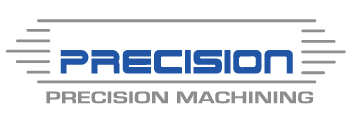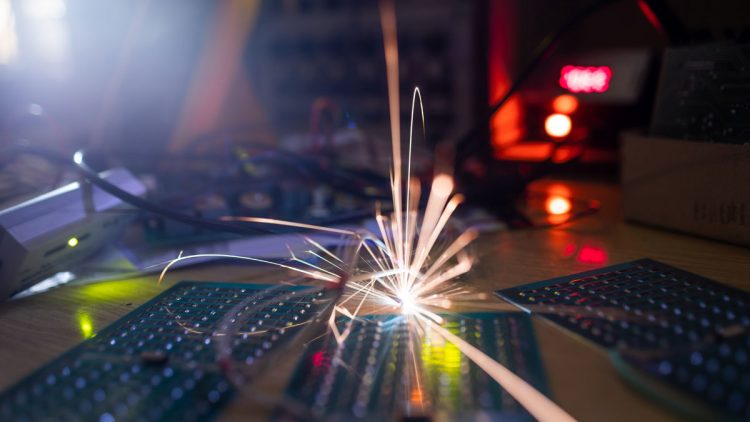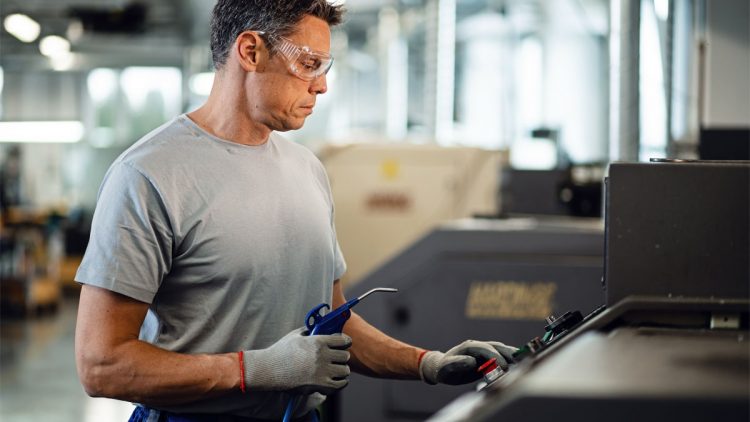What Is Precision Machining?
We live in a time when advancements in contemporary manufacturing, particularly in the last 20 years, have advanced quickly. And the introduction of precision machining has been at the forefront of many of our manufacturing innovations.
Many of the parts, tools, components, and equipment that we use on a daily basis are made in large part by precision machining.
Precision machining is essential to the construction of nearly every piece of machinery, product, or equipment that needs a high degree of accuracy, from the small components used in electronics to the parts found in cars, boats, rockets, and skyscrapers.
Precision machining is the process of shaping, cutting, and removing excess material from a workpiece to meet the dimensional requirements for a finished part or component using computer numerically controlled machining and milling tools under the supervision of a precision machinist.
There can be a reasonable amount of variation between the final dimensions of any two products because no two parts can be made exactly alike.
Tolerances are a set of quantifiable values that define this acceptable deviation.
Because determining the ideal tolerance directly affects turnaround time and manufacturing costs, tolerances are essential to the manufacturing process.
Additional Typical Definitions and Functions of Machining
By definition, a precision machine is a high-precision machine tool used to attain extremely high levels of accuracy. Machines used in precision manufacturing include CNC milling machines, lathes, grinders, cutting tools (such as drill presses and saws), and even high-speed robotics.
The process of removing excess raw material from a workpiece while maintaining the exact tolerances needed to produce a final product is known as precision manufacturing.
Definition of CNC Manufacturing: Computer numerical control (CNC) manufacturing is a broad category of automated manufacturing procedures in which raw materials are cut, milled, and shaped by CNC machining tools in accordance with CAD software specifications.
The product’s blueprint is created using computer-aided design (CAD) software, which also helps with design creation, analysis, and optimization. Computer-aided manufacturing (CAM) software then converts these specifications into automated manufacturing instructions for CNC machines.
What Are the Applications of Precision Machining?
When parts need to be machined with a high degree of accuracy and uniformity, precision machining is a very effective and precise manufacturing process. High-precision CNC machining tools are used to meet standards when a part requires tighter tolerances.
Raw Materials Frequently Used in Precision Machining
Modern manufacturing uses a broad range of raw materials to satisfy industry-wide quality control requirements and standard machining tolerances.
A list of frequently used raw materials, such as engineered plastics, can help you achieve the tolerance and uniformity you’re looking for, since a part’s tolerance is greatly influenced by the composition of the material.
These consist of materials like:
Seven Typical Materials for Accurate Machining
Stainless steel’s strength, machinability, corrosion resistance, and versatility
Aluminum is a lightweight, affordable, corrosion-resistant, and tolerant material.
Brass: Offers a smooth, clean finish and retains threads and tolerances well.
Titanium’s strength to weight ratio, resistance to corrosion, and extreme heat
Copper’s inherent resistance to corrosion, electrical conductivity, and durability
Basic Plastics: incredibly affordable, adaptable, long-lasting, and easily injected
Polymer Plastics: strength, cleaning capabilities, and resistance to corrosion and abrasion
Applications of Precision Machining (By Industry)
Precision machining’s broad applications and exacting accuracy are essential to a large portion of contemporary manufacturing. Let’s examine how precision machining affects the following industries to better appreciate its significance:
The Aerospace Sector
Because precision machining can achieve extremely high tolerances and accuracies, it has been the foundation of aerospace innovation. Precision is essential in situations where a single mistake could cause significant harm. Additionally, many of the components that this industry relies on are made using CNC precision machining processes, including:
Systems for navigation
Panels for interior walls
Ports for landing gear
Bushings for the Automotive Sector
Precision machining techniques are frequently used to design and develop the precise specifications for a part or component needed before being added to the assembly line, especially with the rise in electric vehicles and advancements at the forefront of the automotive industry. Transmissions, wheels, water pumps, and engine blocks are typical examples of machined parts.
Defense and Military Sector
Precision machining has never been as common in the military and defense industries as it is in the development of composite skins for the F35 fighter jet, communication components for SAT radios, and prototyping and ammunition. The depth of parts and accuracy needed are enormous, and CNC machining is a good fit because different countries use different military and defense schematics.
The Medical Sector
To create breakthroughs that enhance our health and quality of life, the medical sector depends on technological and medical equipment innovations. Many of the parts used in the medical field would not be accessible without precision machining. MRI scanners, surgical instruments, implants, orthotic devices, secure enclosures, and research apparatus are typical examples.
East Valley Precision – Custom Machinery Specialists
East Valley Precision offers custom CNC Machining in the Chandler, Arizona and surrounding areas. When you need precision CNC machining and milling contact East Valley Precision. Call us at 480-288-6601 for more information or use our form for a quote.



